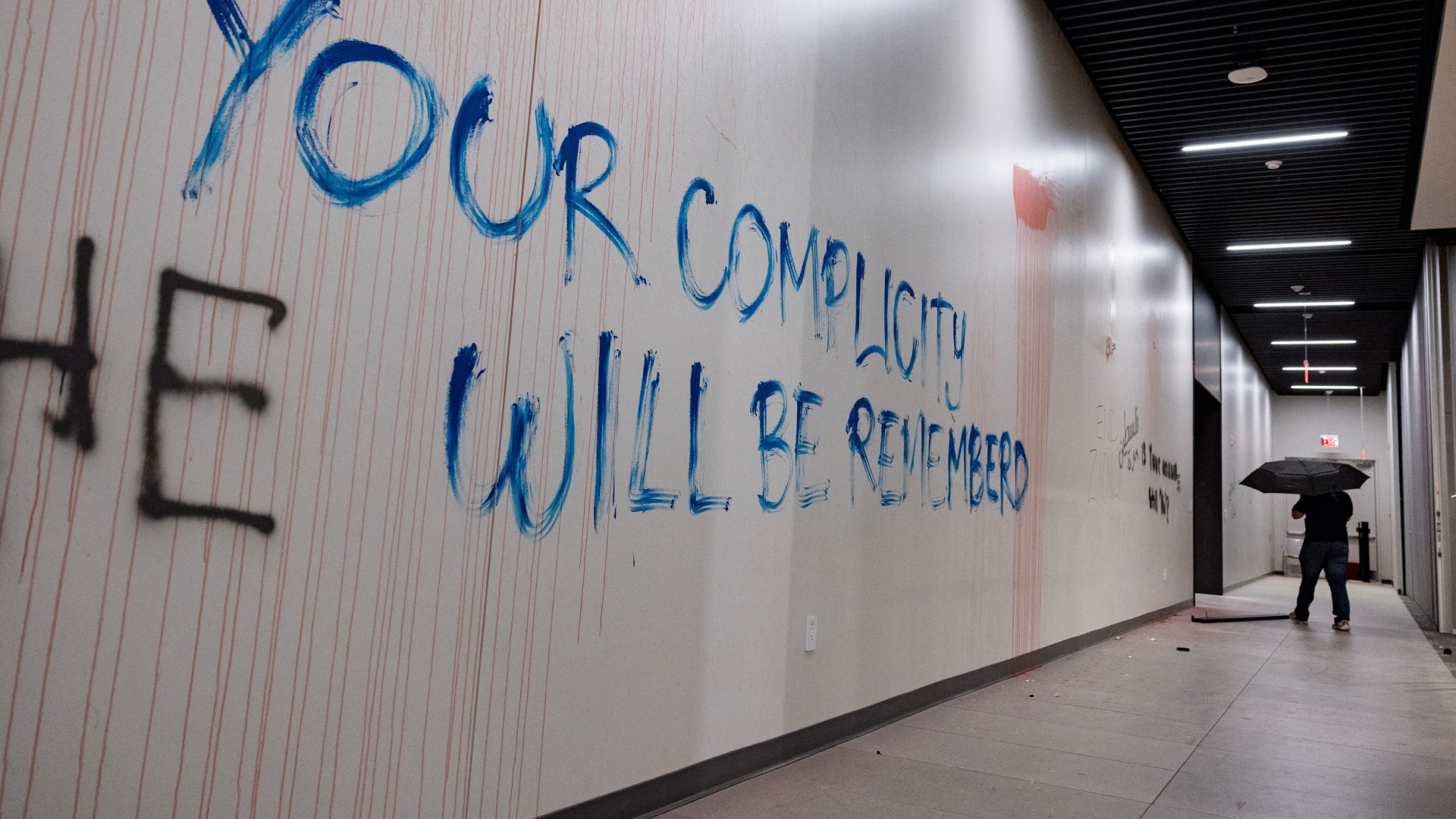US students enter seventh day of hunger strike for Gaza

More than 30 California State University (CSU) students are on a hunger strike to protest against Israel’s blockade of food and water going into Gaza, which has placed the enclave's population at "critical risk" of famine.
In a video released on Sunday, the students said that the hunger strike was growing across campuses: “It’s day seven of the CSU hunger strike for Gaza. We remain steadfast in our struggle for a free Palestine. This has grown to other campuses across California and the nation. We call on every student to use their voice, their body, their collective power to make this genocide inescapable for our administrations.”
The students are also calling for CSU to divest from companies that provide weapons and surveillance technology to Israel, and said they had committed to the hunger strike after calls from students at Palestinian universities.
The students, who are from CSU Long Beach, Sacramento State, San Francisco State and San Jose State, began the hunger strike on 5 May. They are urging CSU to follow in the footsteps of San Francisco State University, which divested last year from weapons manufacturers Lockheed Martin and Leonardo, data analysis company Palantir, and construction company Caterpillar, following a student Gaza solidarity encampment last spring.
They said that students at UCLA, Stanford, and Yale Universities were also participating in the hunger strike.
New MEE newsletter: Jerusalem Dispatch
Sign up to get the latest insights and analysis on Israel-Palestine, alongside Turkey Unpacked and other MEE newsletters
The students have been drinking water with electrolytes and having their vitals tested twice a day.
Demands
In a statement released on the day they commenced the hunger strike, Students for Justice in Palestine said: “We…students from four universities across CSU system, Long Beach, San Jose State, and Sacramento, will begin a united hunger strike in solidarity with the two million Palestinians at risk of starvation in Gaza."
The students said the hunger strike was “indefinite” and demanded CSU-wide divestment, including demands that San Jose State University, Long Beach State University and the California State University system adopt the San Francisco State University human rights investment policy screening.
They want universities to divest from companies that supply weapons, military and surveillance technology, infrastructure, or conduct activity that violates human rights as defined by international law, including companies like Lockheed Martin, Caterpillar, Palantir, and Leonardo.
They are also demanding that the universities end all ties to Israeli institutions within study abroad programmes and lift any policies that place restrictive and repressive measures on freedom of speech and protests on university grounds.
Students cited CSU’s Long Beach holdings in defence company Northrop Grumman as an example. CSU holdings in Northrop Grumman were $128,605 last June, down from $481, 862 of its assets in 2020 when it had investments in both Northrop Grumman and Raytheon. In 2021, the university sold its Raytheon stocks, according to the Long Beach Watchdog.
Students have said that hunger strikes have deep roots in Palestine, Ireland, India, South Africa and the US.
In a post on social media, they said that Palestinian prisoners have been at the front of mass hunger strikes demanding their release and Palestinian liberation.
The hunger strikes commenced after Israel’s aid blockade entered its third month, despite international condemnation, as well as Israel’s announcement that they would intensify its attacks on Gaza.
Organisers have been holding educational workshop during the strikes.
Amy Bentley-Smith, CSU’s director of media relations and public affairs, told the Middle East Eye in a statement that they would “not be altering its investment policies” as a result of student hunger strikes.
“While the CSU and its 23 universities honor the right to protest and the diverse convictions expressed across our campuses, the CSU will not be altering its investment policies. We will continue to uphold the values of free inquiry, peaceful protest, and academic freedom - while keeping student health, safety, and our mission at the forefront of all we do.”
University of Toronto faculty divestment
In Canada, proponents of divesting from Israel chalked up a small victory at the University of Toronto last week.
Faculty and librarians at the University of Toronto Faculty Association (UTFA) successfully voted for their pension plan to divest from Israel on Thursday.
The UTFA wanted its pension plan to commit to “responsible investing” and proposed a motion to do so. The motion, which passed by 52 percent of the vote, called for the University Pension Plan (UPP) to divest from the manufacturing of weapons used to commit or facilitate war crimes, crimes against humanity, and other serious violations of international law in the occupied Palestinian Territory.
It called for the Ontario's UPP to screen any new investments that manufacture or distribute arms, ammunition, implements, or munitions of war which may be used by Israel to commit or sustain human rights violations in Palestine and provide a rapid timeline for complete divestment from all direct and indirect holdings. This request also extended to the support of an "illegal occupation" in any other territory, including Russia’s occupation of the Crimean peninsula.
The motion also demanded the UPP produce a rapid timeline for complete divestment from all such investments. The UPP has previously voluntarily excluded all direct and indirect investments in entities domiciled in Russia within three weeks of that country’s invasion of Ukraine in 2022.
middleeasteye.net